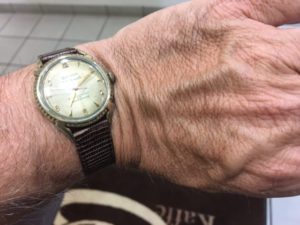Talk about an inspired choice.
Time magazine has unveiled its “Persons of the Year.” The lead “person of the year” is none other than Saudi journalist Jamal Khashoggi, the U.S. resident who was tortured and killed by his countrymen in the Saudi consulate in Istanbul, Turkey.
Because he gave his life reporting on and commenting on the issue of free political expression, Khashoggi has joined a group of other journalists to earn the honor bestowed by Time on those who had the most impact on the world — for better or worse.
Khashoggi, who’s been in the news quite a bit of late, has become the face and the voice of persecuted journalists around the world.
They are “The Guardians” saluted by Time. Oh, there are others worth recognizing, too.
Such as the five employees of The Capital in Annapolis, Md., who were gunned down by a madman. Gerald Fischman, Rob Hiaasen, John McNamara, Rebecca Smith and Wendi Winters also are the faces of persecuted journalists. The editor of the Capital made it clear that “We’re going to publish a newspaper” the next day. So they did. They carried on in memory of their slain colleagues.
Nguyen Ngoc Nhu Quyhn, a Vietnamese blogger, has been calling out her government’s repression of human rights. She goes by the pen name of Mother Mushroom. She was taken captive and sentenced to 10 years in prison. However, this brave woman of letters was released. She, too, is the face and the voice of persecuted journalists.
Time magazine has held up the cudgel for journalists who seek to report on the affairs of the world, their communities and to tell the truth. They aren’t enemies of any people, although it is clear that Jamal Khashoggi was the enemy of the autocratic government that had him tortured and murdered. The CIA has put the finger on Saudi crown prince Mohammad bin Salman, who denies it. Donald Trump has sided with the prince and has disrespected the work of the CIA.
I am going to stand with Time magazine and with the men and women who have fought for — and died for — the cause of reporting the truth to their audience.








